Hello everyone, I hope you are doing well!
Today I thought I'd show you my favorite shots of butterflies.
I am happy that there are still a few specimens of butterflies in my area, because the lack of suitable habitats, meadows with few flowers, the use of insecticides in agriculture and the massive over-fertilization of the landscape are affecting them. Here I would like to introduce you to some types of butterflies that I have been able to admire in my garden lately. If you have the right plants in your garden, you can be lucky and some will come to visit.
Rust-colored skipper butterfly (ochlodes sylvanus)
The rust-colored skipper butterfly can be found in meadows, in tall herb corridors, along roadsides or on fallow land.
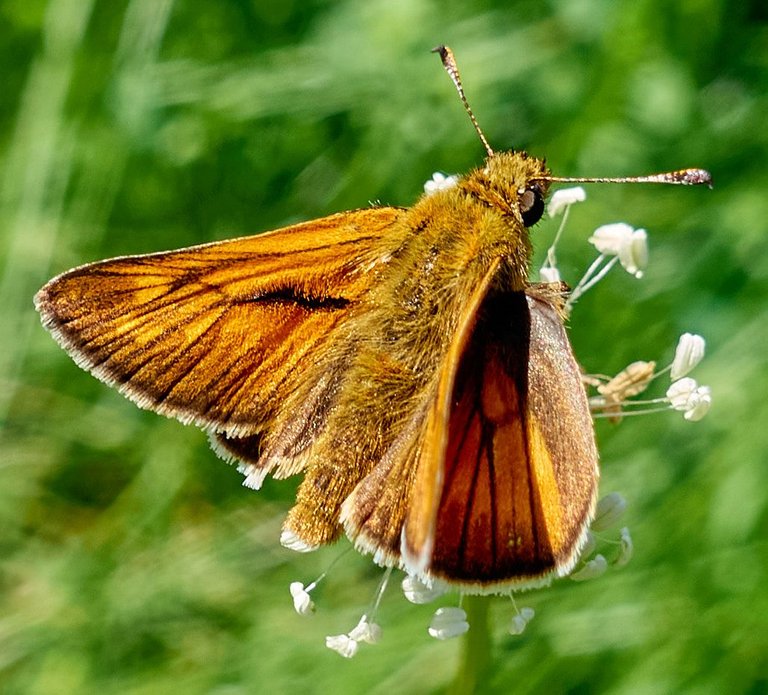
Painted Lady (vanessa cardui)
The Painted Lady is a pronounced migratory butterfly that can cover long distances. As the name suggests, this species of butterfly can be found in areas where there are many thistles, but it also loves other plant.
The Brimstone Butterfly (gonepteryx rhamni)
The males of the brimstone butterfly are bright yellow, with an inconspicuous orange spot on each wing. The females are whitish-green and have no dark spots.
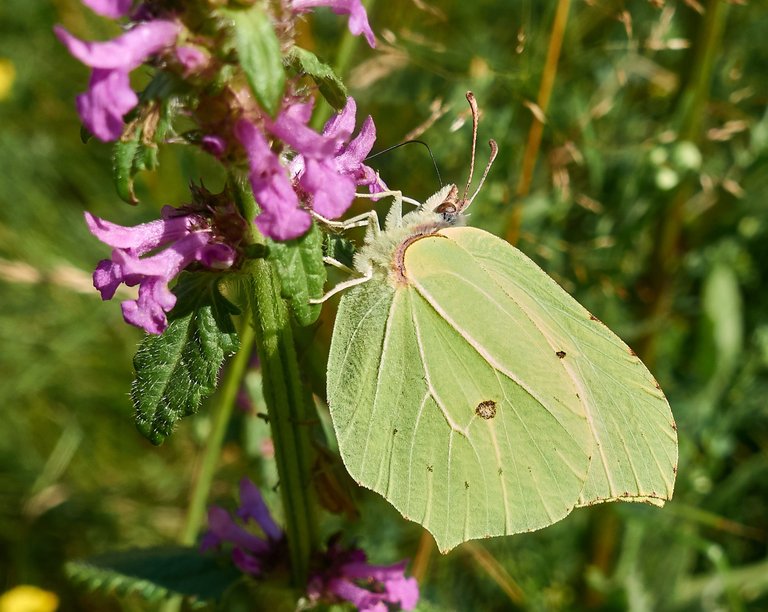
big fox (nymphalis polychloros)
The big fox is a migratory butterfly and can fly long distances.
Changeable Deer (zygaena indet)
The preferred habitats differ from species to species. For example, there are Red Rams that are more at home in swamps and those that mainly inhabit dry habitats.
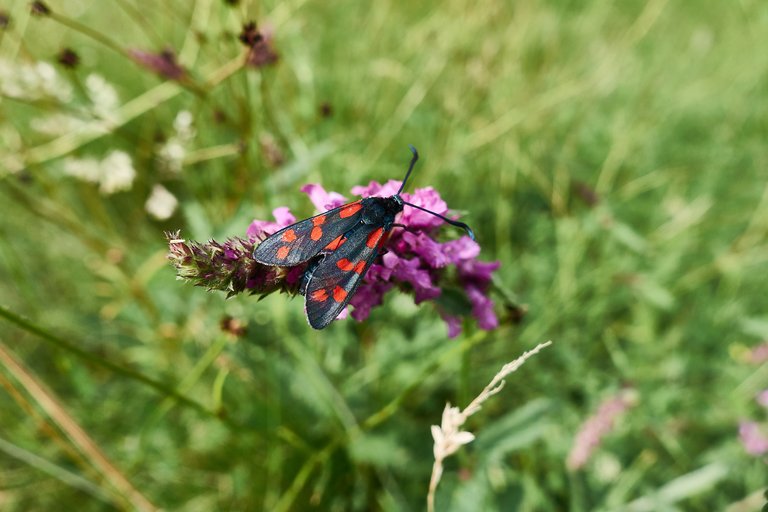
Swallowtails (Iphiclides podalirius)
Because of its size and vivid coloring, the Swallowtail Butterfly is considered one of the most beautiful butterflies found in Central Europe. Both pairs of wings are light cream to light yellow in color on the upper side. Six dark gray to black stripes of different lengths run across the front wings. On the other hand, there is only one dark gray or black stripe on the hind wings. In addition, three blue eyespots adorn the rear area of the hindwings, they lie in a black border band. Slightly above these eyespots there is an orange crescent-shaped spot on the inner edge of each hindwing, which is adjoined by a small black and blue colored area. A sure sign of identification are the long "tails" on the hind wings. However, these can be lost as a result of wear and tear.
It is typical of the Swallowtail Butterfly that the first generation is slightly darker in spring than the second generation, which flies in summer.
Green is the basic color of the caterpillars of the Scarce Swallowtail Butterfly. They have a stocky build and are somewhat reminiscent of isopods. They have fine, light yellow stripes on their flanks. Many specimens have brownish spots on the body. On the other hand, very young caterpillars are blackish in color and individuals ready to pupate are yellow with a few dark spots.
Dimensions
Wingspan 60 mm to 80 mm (females tend to be slightly larger than males), caterpillar length
up to 40 mm.
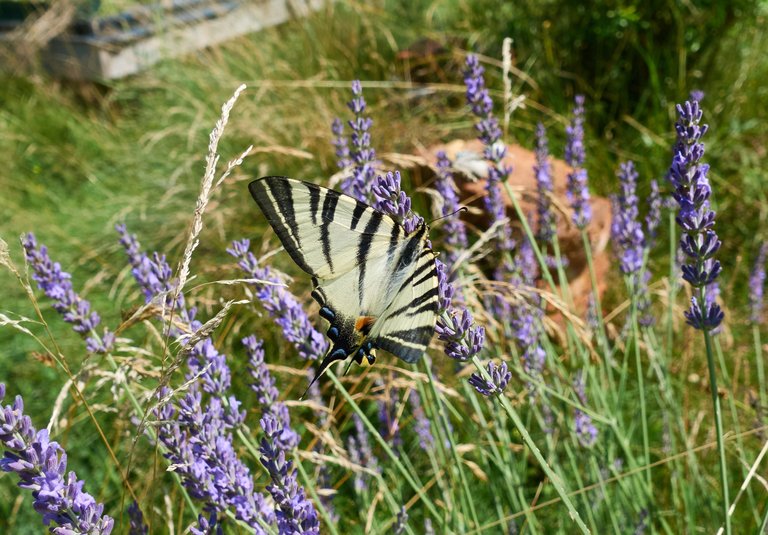
dovetail (Papilio machaon)
The swallowtail is one of the most beautiful European butterflies. Its fluttering and soaring flight is particularly impressive. The insect lives on flowering meadows and dry grassland as well as in gardens with carrot beds, fennel or lilac bushes.
imperial mantle (Argynnis paphia)
Open forest edges, forest paths and clearings or meadows surrounded by forest are among the preferred habitats of the imperial mantle.
The blue (Lycaenidae indet)
There are more than 5,000 species in the blue family worldwide. According to Fauna Europaea, 48 species live in Germany. The usually blue colored top of the wings gave the pretty butterflies their name.

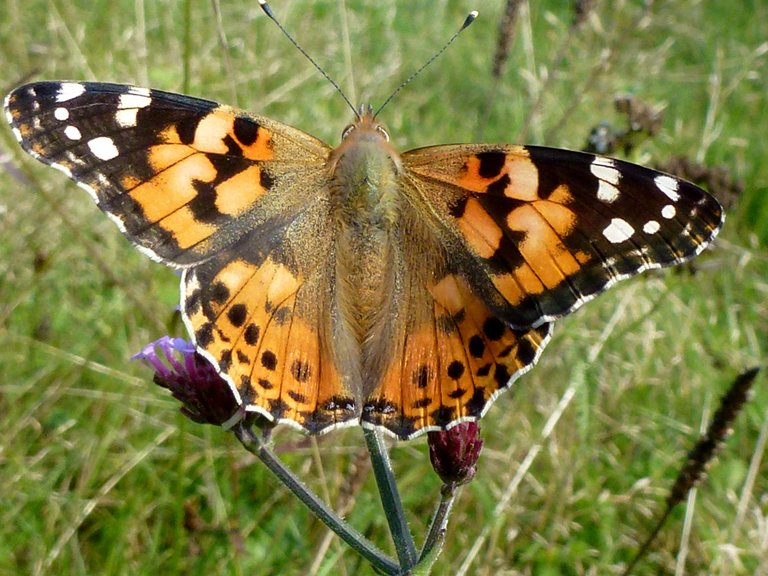

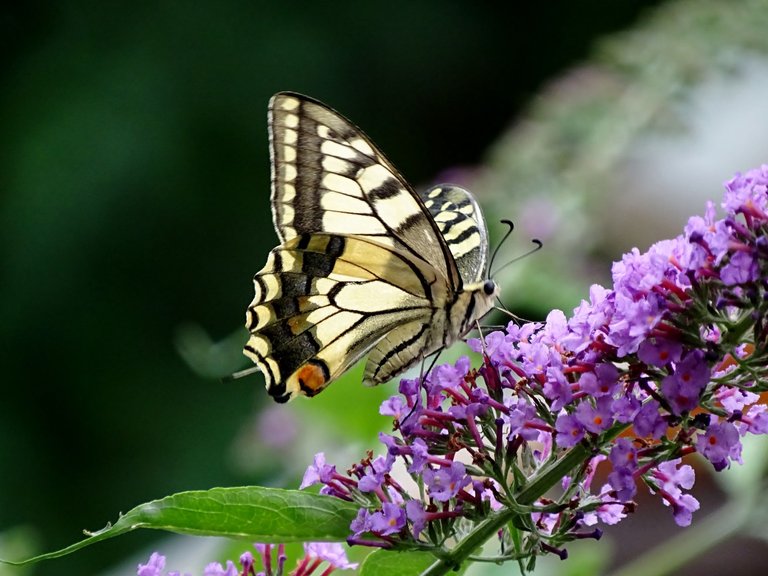
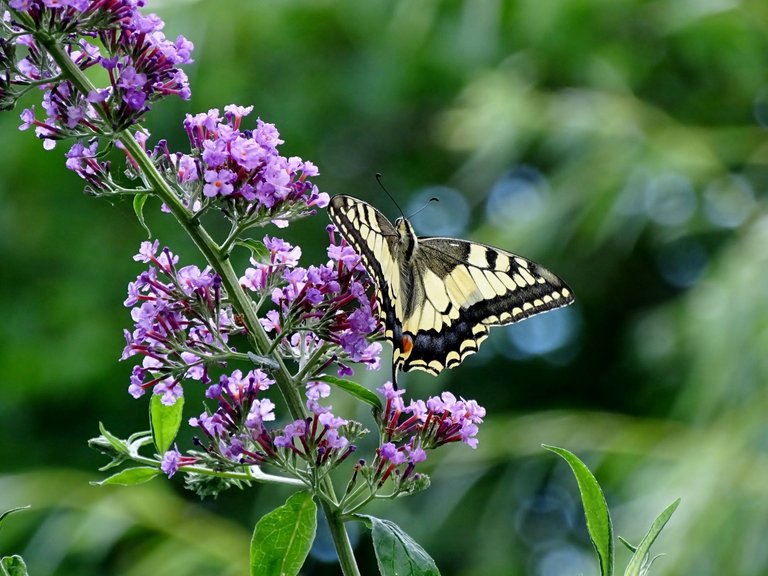
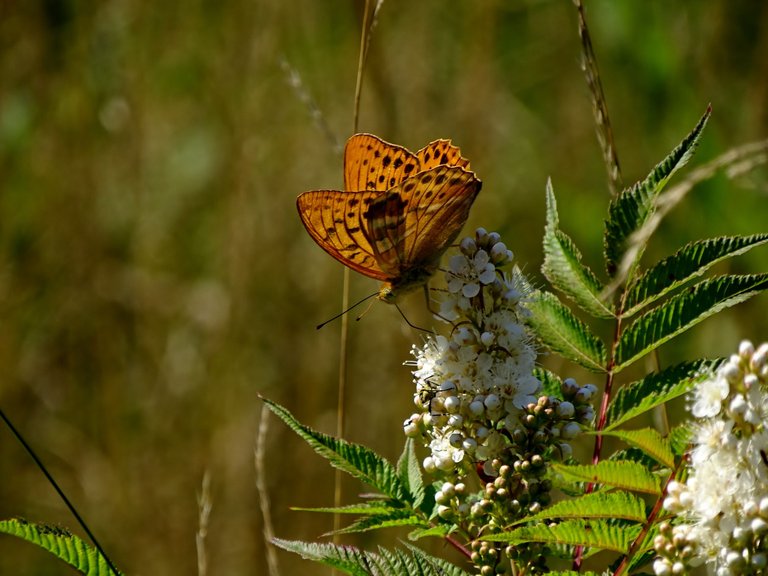
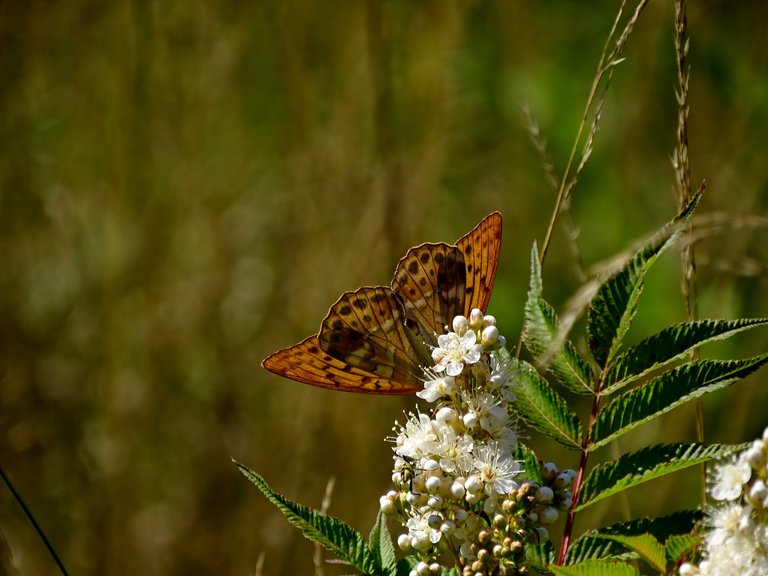
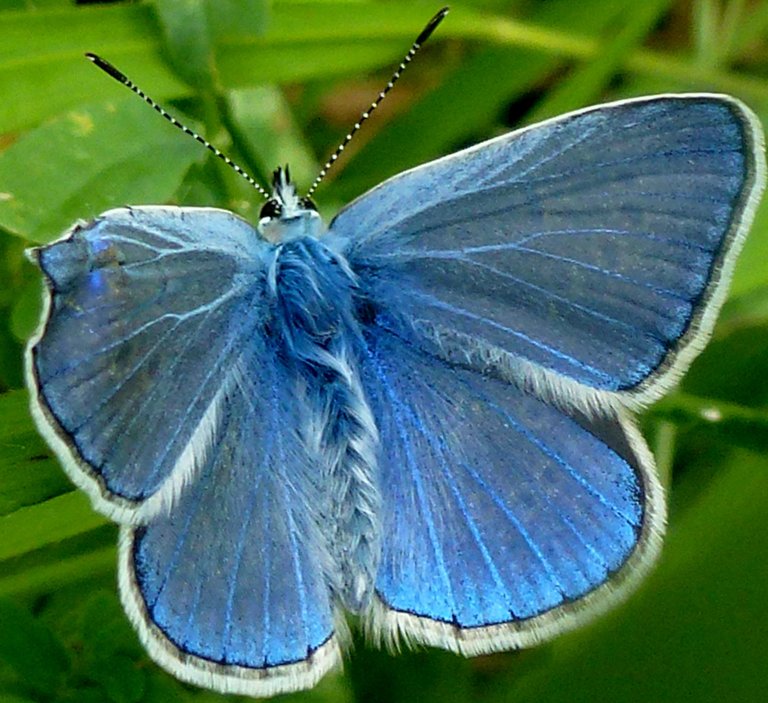
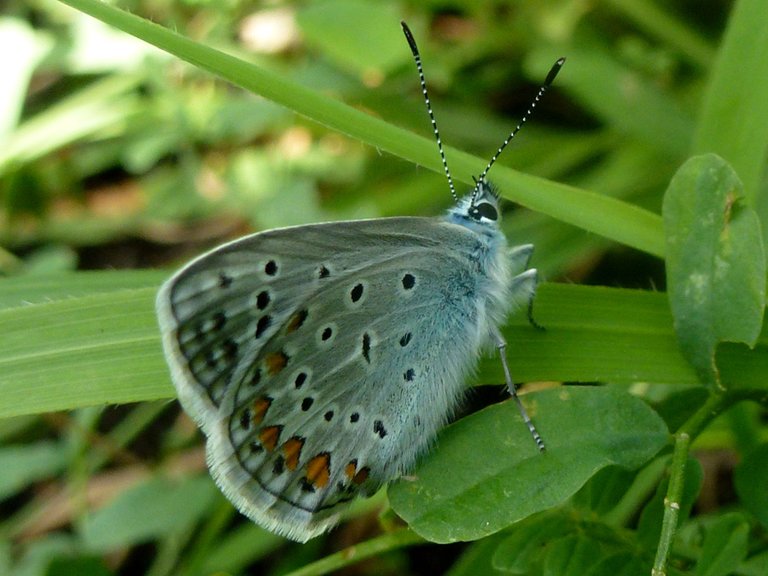
Nice diversity in the types. You got some cool shots in there! Keep up the great work!
Thank you, I'm glad you like the photos. I wish you a nice day!
Of course! You have a great week. =)
😀